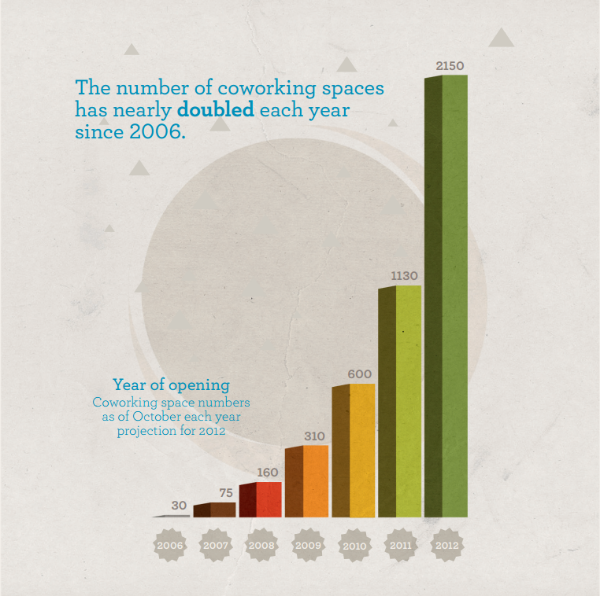Mumpreneurs are like any other entrepreneur in the business world and they too have as much of a chance to make it big in the market as others. The concept of a chaotic mumpreneur who is interrupted by a crying baby during important calls and is surrounded with incomplete projects is history.
Today, mothers trying to hit the jackpot are taking a step ahead along with the rest of the working crowd. Furthermore, the introduction of coworking spaces has only enabled them to demarcate their work life from their personal life. In short, what were once baby steps have now turned to become giant leaps towards success.
We spoke to Gunjeet Parmar, computer scientist by education, and mumpreneur at Crafty hands by choice, about her coworking experience. Let us listen to what she has to say about her journey.
UnBoxed: What are the problems that you personally faced when you worked from home, coffee shops, or offices?
Gunjeet: It is definitely better to work at a coworking space than at home, in an office, or even a coffee shop, especially when you are a mother. I tried them all. For about 13 years, I worked in a corporate environment and after having a baby, I tried working from home. There were times I would visit restaurants that provided the facility to sit and work. However, I found the right balance between home and work only at a coworking space.
A blurred boundary between personal and professional environment, especially with children in the house is a biggest problem with working from home. This also includes not being able to enforce personal discipline just as someone with a regular job would do by getting dressed and starting his day at a specific time.
As far as going to coffee shops is concerned, even though free wi-fi is available, there will be a lot of chatter and other distractions. So, giving undivided attention to work becomes troublesome.
Another drawback of working in the coffee shop is that the seating is not ergonomic. Chairs in coffee shops are meant for lounging and not for long working hours. Additionally, the technical backup and quick access to office supplies like courier and print are unavailable.
In a typical corporate environment, there is a lack in the variety of people you get to interact with. Everyone is almost always talking about the same issues. On the top of that, you have deadlines and a crying baby at home.
This is where coworking comes in as a breeze. The space offers a mixed energy of various individuals hailing from diverse fields, thinking in different directions, and doing real work. So, it becomes extremely interesting.
UB: According to you, what are your essential requirements at a coworking space?
G: To work, I first need my tools. These days, a laptop serves most of the purpose and since I am a software professional, I carry my laptop everywhere. Besides that, I need a clean, peaceful, and safe environment. It has to be a space where I can get time to think and do my work with ease with easy access to basic amenities like snacks, internet, electricity, and restrooms. I guess that is about it.
UB: Have you heard about the term “Coworkation”? Please share your thoughts on it.
G: Coworkation, for me, is kind of an oxymoron. I am a firm believer in full vacations. I have children. So when I am away from home on vacation and I am working, I’d like to just work. But, if I am with my children I would be committed to having a good time with them and so I prefer not to work.
However, if I was single and just backpacking and travelling then I would probably cowork. It is a good concept especially when you run out of money during a vacation as you can start working and earn some.
It is understandable why people would opt for coworkation but, considering my personal situation it will not work for me. My children would be disappointed in me. Also, the border that coworking is helping me establish between my work and family life would start blurring.
UB: Why did it click for you at UnBoxed? What caught your attention there?
G: I have been working at UnBoxed since the last 5 months. Prior to this, I checked out other similar facilities and even tried them for a day, but eventually I liked and chose what UnBoxed provided.
From a professional standpoint, UnBoxed gives me access to everything I need to work, but what really worked for me was their huge open spaces.
Here, many prefer to sit on the floor. We all have access to one another, so there is a lot of interesting discussion happening and you get to know about what others are doing. This exposes us to different kinds of problems and compels us to come up with innovative solutions. The environment at UnBoxed is flexible and casual without unnecessary rules and regulations.
I find it a breeze to work there.
UB: What went wrong outside UnBoxed at other coworking spaces?
G: Like I mentioned, there were obviously space issues. You cannot work freely in a cramped space where others can peek over your work on and off.
Another reason why other places did not work for me was because their managers did not take the effort of introducing new people to the existing members on the floor, unlike UnBoxed. So, you are working with them not knowing what the person sitting next to you does for a living. The same thing applies to a corporate kind of coworking space. Nobody knows anybody. So, unless you are an extrovert and inclined to making connections yourself, there is no scope of any kind of business networking.
With this, we come to the end to our conversation with the mumpreneur, Gunjeet.
Coworking spaces surely are the next generation workspace for the self-starters and freelancers providing them with all essential facilities and amenities. But as in the case of Gunjeet, we can see not all coworking environments are conducive to everyone’s basic needs. So, what are your views on coworking spaces? Do share with us.





